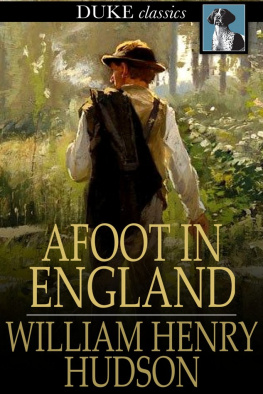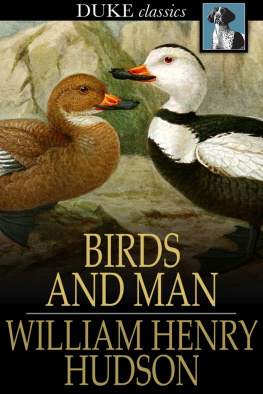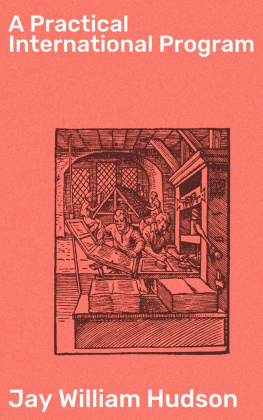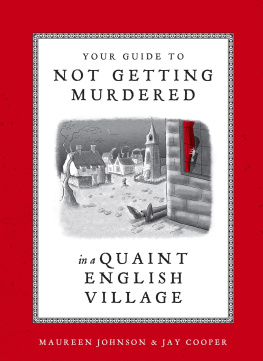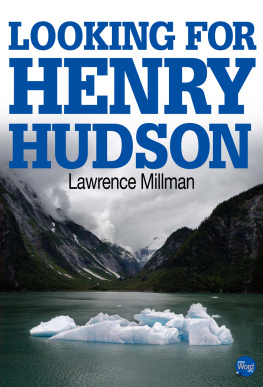William Henry Hudson - Afoot in England
Here you can read online William Henry Hudson - Afoot in England full text of the book (entire story) in english for free. Download pdf and epub, get meaning, cover and reviews about this ebook. year: 2012, publisher: Duke Classics, genre: Art. Description of the work, (preface) as well as reviews are available. Best literature library LitArk.com created for fans of good reading and offers a wide selection of genres:
Romance novel
Science fiction
Adventure
Detective
Science
History
Home and family
Prose
Art
Politics
Computer
Non-fiction
Religion
Business
Children
Humor
Choose a favorite category and find really read worthwhile books. Enjoy immersion in the world of imagination, feel the emotions of the characters or learn something new for yourself, make an fascinating discovery.
- Book:Afoot in England
- Author:
- Publisher:Duke Classics
- Genre:
- Year:2012
- Rating:5 / 5
- Favourites:Add to favourites
- Your mark:
- 100
- 1
- 2
- 3
- 4
- 5
Afoot in England: summary, description and annotation
We offer to read an annotation, description, summary or preface (depends on what the author of the book "Afoot in England" wrote himself). If you haven't found the necessary information about the book — write in the comments, we will try to find it.
This charming travelogue from William Henry Hudson, expert birdwatcher and renowned chronicler of English country life, gives readers unparalleled access to the quaint rhythms of village existence at the turn of the twentieth century. These essays and observations will please readers who have a love for English culture and the great outdoors.
Afoot in England — read online for free the complete book (whole text) full work
Below is the text of the book, divided by pages. System saving the place of the last page read, allows you to conveniently read the book "Afoot in England" online for free, without having to search again every time where you left off. Put a bookmark, and you can go to the page where you finished reading at any time.
Font size:
Interval:
Bookmark:

First published in 1909
ISBN 978-1-62012-556-4
Duke Classics
2012 Duke Classics and its licensors. All rights reserved.
While every effort has been used to ensure the accuracy and reliability of the information contained in this edition, Duke Classics does not assume liability or responsibility for any errors or omissions in this book. Duke Classics does not accept responsibility for loss suffered as a result of reliance upon the accuracy or currency of information contained in this book.
Guide-books are so many that it seems probable we have more than anyother countrypossibly more than all the rest of the universe together.Every county has a little library of its ownguides to its towns,churches, abbeys, castles, rivers, mountains; finally, to the countyas a whole. They are of all prices and all sizes, from the diminutivepaper-covered booklet, worth a penny, to the stout cloth-bound octavovolume which costs eight or ten or twelve shillings, or to the giganticfolio county history, the huge repository from which the guide-bookmaker gets his materials. For these great works are also guide-books,containing everything we want to learn, only made on so huge a scaleas to be suited to the coat pockets of Brobdingnagians rather than oflittle ordinary men. The wonder of it all comes in when we find thatthese books, however old and comparatively worthless they may be, arepractically never wholly out of date. When a new work is brought out(dozens appear annually) and, say, five thousand copies sold, itdoes not throw as many, or indeed any, copies of the old book out ofcirculation: it supersedes nothing. If any man can indulge in the luxuryof a new up-to-date guide to any place, and gets rid of his old one(a rare thing to do), this will be snapped up by poorer men, who willtreasure it and hand it down or on to others. Editions of 1860-50-40,and older, are still prized, not merely as keepsakes but for studyor reference. Any one can prove this by going the round of a dozensecond-hand booksellers in his own district in London. There willbe tons of literary rubbish, and good stuff old and new, but fewguidebooksin some cases not one. If you ask your man at a venture for,say, a guide to Hampshire, he will most probably tell you that he hasnot one in stock; then, in his anxiety to do business, he will, perhaps,fish out a guide to Derbyshire, dated 1854a shabby old bookand offerit for four or five shillings, the price of a Crabbe in eight volumes,or of Gibbon's Decline and Fall in six volumes, bound in calf. Talk tothis man, and to the other eleven, and they will tell you that there isalways a sale for guide-booksthat the supply does not keep pace withthe demand. It may be taken as a fact that most of the books of thiskind published during the last half-centurymany millions of copies inthe aggregateare still in existence and are valued possessions.
There is nothing to quarrel with in all this. As a people we run about agreat deal; and having curious minds we naturally wish to know all thereis to be known, or all that is interesting to know, about the places wevisit. Then, again, our time as a rule being limited, we want the wholematterhistory, antiquities, places of interest in the neighbourhood,etc. in a nutshell. The brief book serves its purpose well enough; butit is not thrown away like the newspaper and the magazines; howevercheap and badly got up it may be, it is taken home to serve anotherpurpose, to be a help to memory, and nobody can have it until its ownerremoves himself (but not his possessions) from this planet; or untilthe broker seizes his belongings, and guide-books, together with otherbooks, are disposed of in packages by the auctioneer.
In all this we see that guide-books are very important to us, and thatthere is little or no fault to be found with them, since even the worstgive some guidance and enable us in after times mentally to revisitdistant places. It may then be said that there are really no badguide-books, and that those that are good in the highest sense arebeyond praise. A reverential sentiment, which is almost religious incharacter, connects itself in our minds with the very name of Murray. Itis, however, possible to make an injudicious use of these books, and byso doing to miss the fine point of many a pleasure. The very fact thatthese books are guides to us and invaluable, and that we readily acquirethe habit of taking them about with us and consulting them at frequentintervals, comes between us and that rarest and most exquisite enjoymentto be experienced amidst novel scenes. He that visits a place new to himfor some special object rightly informs himself of all that the book cantell him. The knowledge may be useful; pleasure is with him a secondaryobject. But if pleasure be the main object, it will only be experiencedin the highest degree by him who goes without book and discovers whatold Fuller called the "observables" for himself. There will be nomental pictures previously formed; consequently what is found will notdisappoint. When the mind has been permitted to dwell beforehand onany scene, then, however beautiful or grand it may be, the elementof surprise is wanting and admiration is weak. The delight has beendiscounted.
My own plan, which may be recommended only to those who go outfor pleasurewho value happiness above useless (otherwise useful)knowledge, and the pictures that live and glow in memory above albumsand collections of photographsis not to look at a guide-book until theplace it treats of has been explored and left behind.
The practical person, to whom this may come as a new idea and who wishesnot to waste any time in experiments, would doubtless like to hear howthe plan works. He will say that he certainly wants all the happiness tobe got out of his rambles, but it is clear that without the book in hispocket he would miss many interesting things: Would the greater degreeof pleasure experienced in the others be a sufficient compensation?I should say that he would gain more than he would lose; that vividinterest and pleasure in a few things is preferable to that fainter,more diffused feeling experienced in the other case. Again, we have totake into account the value to us of the mental pictures gathered in ourwanderings. For we know that only when a scene is viewed emotionally,when it produces in us a shock of pleasure, does it become a permanentpossession of the mind; in other words, it registers an image which,when called up before the inner eye, is capable of reproducing a measureof the original delight.
In recalling those scenes which have given me the greatest happiness,the images of which are most vivid and lasting, I find that most of themare of scenes or objects which were discovered, as it were, by chance,which I had not heard of, or else had heard of and forgotten, or whichI had not expected to see. They came as a surprise, and in the followinginstance one may see that it makes a vast difference whether we do or donot experience such a sensation.
In the course of a ramble on foot in a remote district I came to a smallancient town, set in a cuplike depression amidst high wood-grown hills.The woods were of oak in spring foliage, and against that vivid greenI saw the many-gabled tiled roofs and tall chimneys of the old timberedhouses, glowing red and warm brown in the brilliant sunshinea scene ofrare beauty, and yet it produced no shock of pleasure; never, in fact,had I looked on a lovely scene for the first time so unemotionally.It seemed to be no new scene, but an old familiar one; and that it hadcertain degrading associations which took away all delight.
Font size:
Interval:
Bookmark:
Similar books «Afoot in England»
Look at similar books to Afoot in England. We have selected literature similar in name and meaning in the hope of providing readers with more options to find new, interesting, not yet read works.
Discussion, reviews of the book Afoot in England and just readers' own opinions. Leave your comments, write what you think about the work, its meaning or the main characters. Specify what exactly you liked and what you didn't like, and why you think so.

